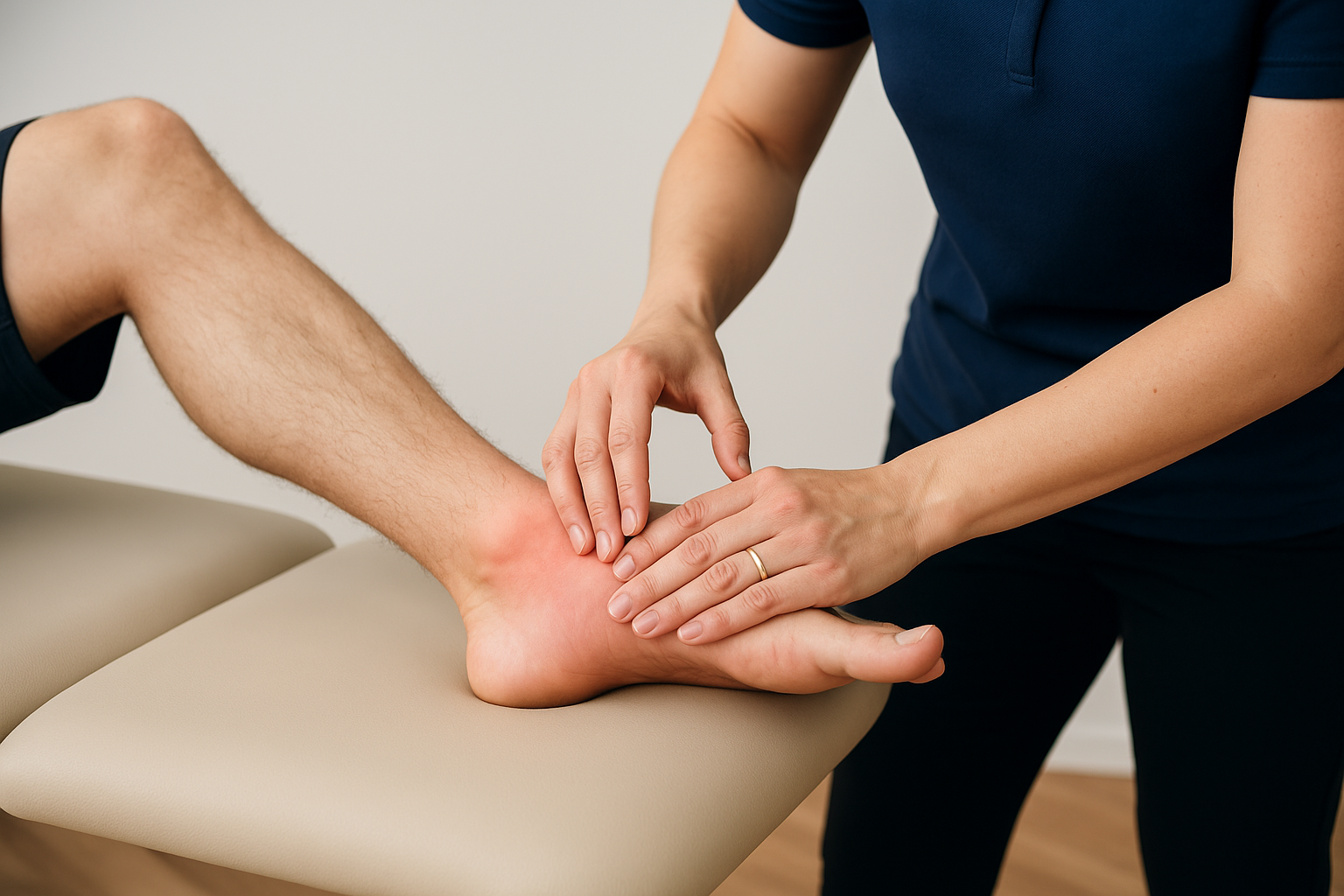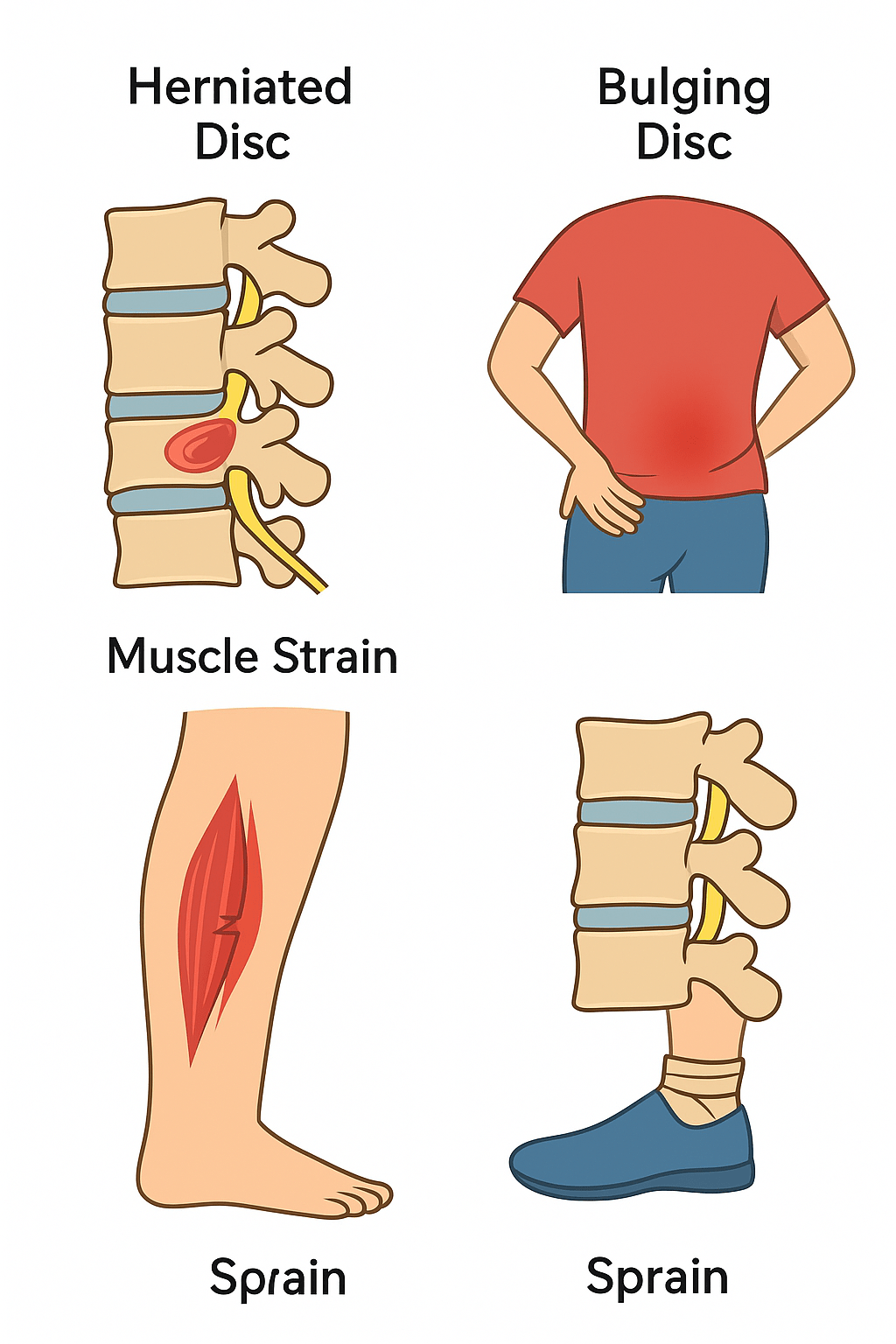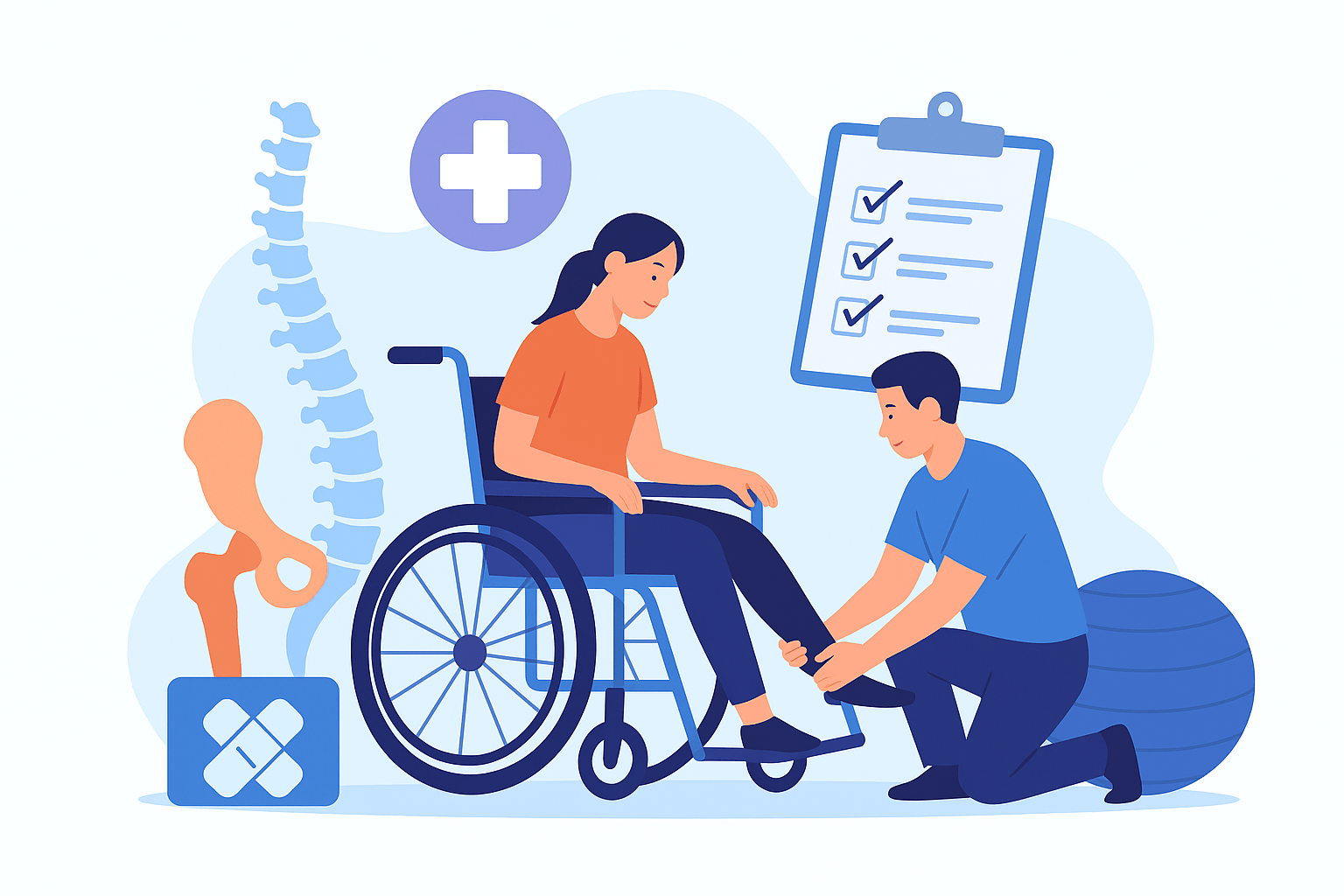Ankle injuries are among the most common joint problems treated at PainFX Physiotherapy. Whether it’s a rolled ankle on the sports field, a sprain while walking on uneven ground, or a fracture needing rehabilitation, the ankle is a vital joint for movement and stability. Without the right care, even a minor injury can lead to long-term ankle pain and repeated sprains.
If you’re searching for ankle injury treatment, ankle sprain physiotherapy, or ankle rehab exercises, PainFX Physiotherapy offers the latest, evidence-based approaches to help you recover safely and effectively.
What Causes Ankle Injuries?
The ankle joint is made up of bones, ligaments, tendons, and muscles that work together to support your body. Injuries usually occur when these tissues are overstressed, leading to:
Ankle sprains – overstretch or tear of ankle ligaments (most common)
Fractures – small cracks or breaks in the ankle bones
Tendon injuries – such as Achilles or peroneal tendon strain
Chronic ankle instability – repeated sprains causing weakness or “giving way”
Why Physiotherapy at PainFX Physiotherapy is Essential for Ankle Pain Treatment
The latest research shows that physiotherapy is the best ankle injury treatment for both short-term recovery and long-term prevention. At PainFX Physiotherapy, we help you:
Reduce ankle pain and swelling
Regain strength, balance, and stability
Prevent future ankle sprains with rehabilitation exercises
Return safely to work, walking, or sport
Latest Physiotherapy Treatments for Ankle Injuries at PainFX Physiotherapy
Early Mobilisation vs. Prolonged Rest
Rest is no longer the only solution. At PainFX Physiotherapy, we guide patients through gentle movement and progressive loading, which research shows leads to faster recovery than long periods of immobilisation.
Manual Therapy
Joint mobilisations to restore ankle range of motion
Soft tissue release for tight calf and ankle muscles
Taping or bracing for temporary support and pain relief
Targeted Exercise Therapy
Exercise is the foundation of ankle sprain physiotherapy. Rehab at PainFX Physiotherapy includes:
Strengthening exercises (calf raises, theraband ankle work)
Balance training (wobble board, single-leg stance)
Functional ankle rehab exercises for sport and daily movement
Shockwave Therapy & Dry Needling
For stubborn ankle pain or tendon injuries, shockwave therapy and dry needling at PainFX Physiotherapy accelerate healing by improving blood flow and reducing chronic inflammation.
Return-to-Sport Testing
Our physiotherapists use hop tests, strength checks, and movement analysis to ensure your ankle is strong enough before returning to sport — preventing re-injury.
Recovery Time for Ankle Injuries
Mild ankle sprains: 2–4 weeks
Moderate sprains: 4–8 weeks
Severe sprains or post-surgery rehab: 3–6 months
A personalised ankle injury physiotherapy plan at PainFX Physiotherapy ensures faster, safer recovery.
When to Seek Physiotherapy for Ankle Pain
See a physiotherapist at PainFX Physiotherapy if you experience:
Persistent ankle swelling or pain beyond a week
Repeated ankle sprains or instability
Difficulty walking, climbing stairs, or returning to sport
Early treatment prevents chronic ankle problems and speeds up recovery.
Key Takeaway
Physiotherapy at PainFX Physiotherapy is the gold standard for ankle injury treatment. With advanced rehab techniques such as shockwave therapy, blood flow restriction training, and tailored ankle rehab exercises, you can recover faster, regain confidence, and prevent future sprains.
If you’re looking for ankle sprain treatment near me or need a tailored ankle injury physiotherapy plan, book an appointment with PainFX Physiotherapy today.
Calf Muscle Injury
Calf Injury Treatment with Physiotherapy at PainFX Physiotherapy
Calf injuries are common in athletes, runners, and even people who suddenly strain their leg during daily activities. The calf muscles, mainly the gastrocnemius and soleus, play a crucial role in walking, running, jumping, and balance. Without proper treatment, calf injuries can lead to chronic pain, stiffness, or repeated strains.
If you’re searching for calf injury treatment, physiotherapy for calf strain, or calf rehabilitation exercises, PainFX Physiotherapy provides evidence-based care to help you recover safely and prevent future injuries.
What Causes Calf Injuries?
Calf injuries usually occur due to sudden overload, overstretching, or repetitive strain. Common causes include:
Calf strain or tear – overstretching or tearing of the gastrocnemius or soleus muscles
Muscle cramp – sudden, painful contraction often due to fatigue or dehydration
Tendinopathy – chronic overuse of Achilles tendon affecting calf function
Sports injuries – sprinting, jumping, or sudden changes in direction
Why Physiotherapy at PainFX Physiotherapy is Essential for Calf Injury Recovery
Physiotherapy is the most effective approach to manage calf injuries. At PainFX Physiotherapy, we help you:
Reduce calf pain, swelling, and stiffness
Restore strength and flexibility
Improve balance and movement control
Prevent re-injury with targeted rehabilitation exercises
Latest Physiotherapy Treatments for Calf Injuries at PainFX Physiotherapy
Early Mobilisation and Controlled Stretching
Gentle movement and guided stretching promote faster healing and prevent scar tissue formation.
Manual Therapy
Soft tissue massage to release tight calf muscles
Deep tissue techniques to improve blood flow and reduce muscle tension
Myofascial release for surrounding leg muscles
Targeted Strengthening and Rehab Exercises
Calf raises, theraband resistance work, and eccentric strengthening
Balance and proprioception exercises to improve stability
Functional exercises to restore running, walking, or sport-specific movements
Shockwave Therapy & Dry Needling
For chronic calf pain, tendinopathy, or stubborn muscle tightness, shockwave therapy and dry needling can accelerate healing and reduce discomfort.
Return-to-Sport Assessment
Our physiotherapists assess strength, flexibility, and functional movement before clearing you to return to running, sport, or high-intensity activity.
Recovery Time for Calf Injuries
Mild calf strains: 1–3 weeks
Moderate strains: 4–6 weeks
Severe tears or post-surgical rehab: 2–3 months
A personalised calf injury physiotherapy plan at PainFX Physiotherapy ensures faster, safer recovery.
When to Seek Physiotherapy for Calf Pain
See a physiotherapist at PainFX Physiotherapy if you experience:
Persistent calf pain or swelling
Difficulty walking, running, or standing on tiptoe
Repeated calf strains or tightness
Early physiotherapy treatment prevents chronic calf pain and improves long-term muscle function.
Key Takeaway
Physiotherapy at PainFX Physiotherapy is the gold standard for calf injury treatment. With advanced rehab techniques such as shockwave therapy, dry needling, and targeted strengthening exercises, you can recover faster, regain confidence, and prevent future calf injuries.
If you’re looking for calf strain physiotherapy near me or need a personalised calf injury rehab plan, book an appointment with PainFX Physiotherapy today.



